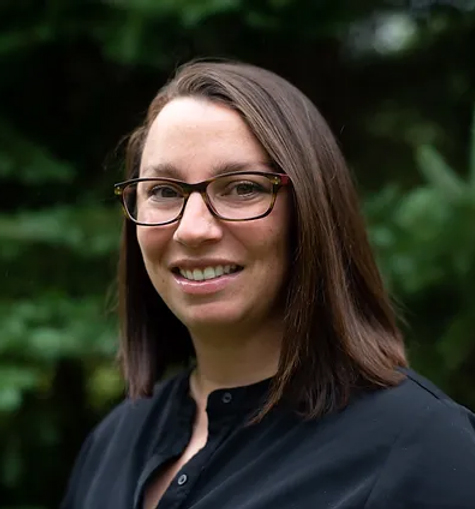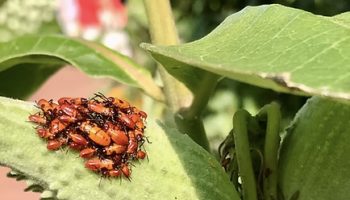
Marisa Riggi’s love for the environment was born in the patch of woods behind her childhood home, where she spent “way too much time” playing and trying to discover all the things the woods had to offer.
“I’ve always had a really deep love and passion for animals,” said Riggi, executive director of the Western New York Land Conservancy (WNYLC). “When I finally took my first environmental science class … it opened my eyes, like, ‘This doesn’t just have to be a hobby. This is something you can do and that you can study and work in.’”
Riggi will be the speaker at this season’s first installment of the Bird, Tree & Garden Club’s Brown Bag Lecture Series at 12:15 p.m. today in Smith Wilkes Hall. At her lecture, she will discuss some of the WNYLC’s important projects, particularly its work on the WNY Wildway.
The goal of the WNY Wildway, according to Riggi, is to connect Western New York and the Great Lakes to the larger Eastern Wildway, which stretches from Mexico to Canada, allowing wildlife to easily travel across eastern North America. The project also seeks to prevent the destruction of areas of land that serve as habitats for wildlife across the region.
At her lecture, Riggi will also discuss the important role Chautauqua County plays in both the WNY Wildway and the ecology of the northeastern United States at large. That connection between local conservation efforts and the larger, multinational ecosystems they contribute to, she said, is of great personal importance.
Riggi grew up in Amherst, just outside of Buffalo, before receiving her bachelor’s degree from SUNY Geneseo. After graduating, she traveled east across state lines to pursue her master’s degree in natural resources at the University of Vermont, where she stayed during the beginning of her career. But she always knew that Western New York was where she needed to be.
“It was really hard to leave Vermont. Vermont is gorgeous and wonderful,” she said. “But so is Western New York, and I really wanted to get home and take these tools and this knowledge I had gained through my work in New England and bring it home … and really start to build those pieces of connected conservation in our region.”
Riggi’s notion of “connected conservation” can be seen in Chautauqua County just 20 minutes away from the grounds of the Institution: the Floating Fen, located in the College Lodge forest, is one of the WNYLC’s newest projects, acquired in late 2023. This unique, 225-acre habitat is home to a massive array of species, including sundews – one of just four carnivorous plants native to New York. And, as Riggi explained, every piece of land is critical in protecting the future of Chautauqua County, Western New York, and the entirety of the Eastern Wildway.
“I think from a big statewide perspective, Chautauqua County can often kind of be left out of the bigger narrative,” she said. “But it plays such an important role in the climate change future of Western New York.”
Riggi hopes that her lecture will inspire Chautauquans to explore the Floating Fen and all of the diverse ecology and wildlife that Western New York has to offer and that, ultimately, they can have the same realization she did about the power of preservation.
“I knew I really wanted to do something that was extremely permanent,” she said, “and the most permanent thing you can do is conserve land forever.”




